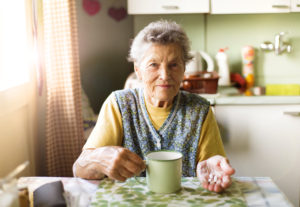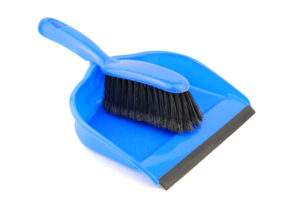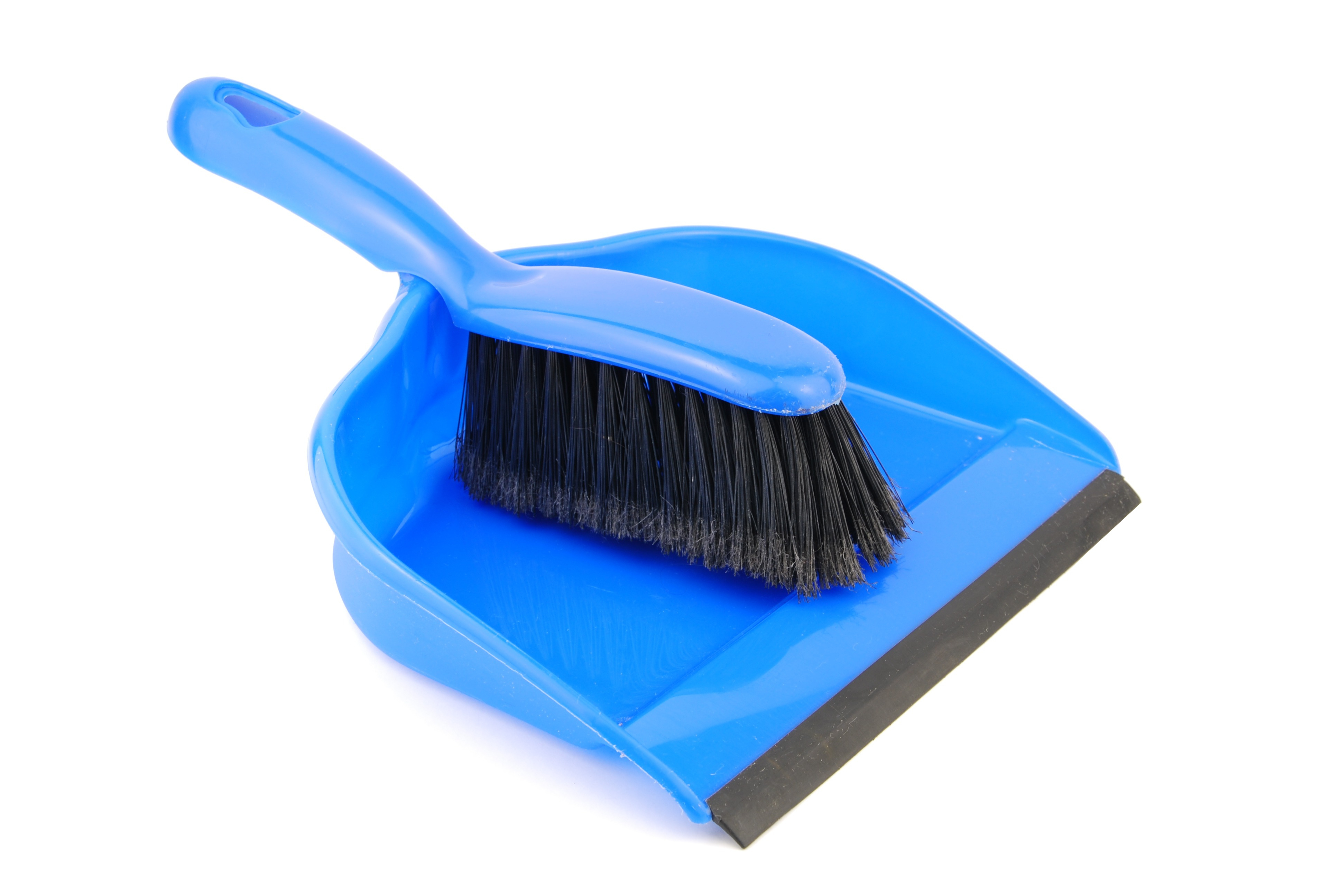This place looks a filthy mess, Margie thought.
“Three miserable years,” Babs announced, tromping around the kitchen, bagel in one hand, crumbs everywhere, juice dribble dribbling down the carton. “Three years today.” She stabbed the calendar with a butter knife, then tossed it carelessly into the sink, greasy smudges and smears staining the stainless-steel basin. “That’s three years more than anybody should try to live with the likes of you. I’m gonna mark the occasion by spending it the hell away from here.” She bit the bagel, then wiped her hand on a dish towel as dribs and drabs of melting butter collected on the shiny tiled floor.
“Why don’t you see how much more mess you can make?” sniped Margie.
“Is that a challenge?” Babs took another bite, then licked her fingers.
Widowed sisters in their seventies, they had agreed to split the costs and upkeep of sharing Margie’s house. Babs had since squandered most of the proceeds from selling her own place, most on “loans” to help support her barely employed sons, not to mention covering the expenses generated by two never-married granddaughters whose sole talent seemed to be bearing babies by men who don’t stick around. Margie never had any children of her own, nor did she envy deluded women who pretend to find joy in constantly picking up after ill-mannered, unkempt brats.
Babs nibbled the bagel’s crust, then tossed the whole mess into the wastebasket, a dollop of butter now splotching the receptacle’s polished lid.
Margie noted all the damage, then followed her sister out of the kitchen. “You’re going to Irma’s,” she said, more statement than question. An older shut-in with her own apartment across town, Irma would ask Babs to take her shopping, then monopolize her for the rest of a day, the two of them sprawled on couches watching soaps and eating fried bologna sandwiches. Margie had tried going along once, but the filth and stench in that place made her ill, mess everywhere, grime and mold and bottleflies all indifferent to the very notion that any self-respecting occupant would ensure that such encroachers find themselves most assuredly unwelcome. If Irma really wanted civilized company, she would have to scour that place top to bottom, then air it out a few days and scour it again. Until then, she must necessarily settle for Babs, the one who from the time she learned to walk never seemed even to notice any kind of mess, let alone care enough to do something about it.
“Stay out of my room,” Babs said, pausing in front of Margie’s decorative hallway mirror. She pulled a comb through her hair before adding an unnecessary finger-swipe of lipstick from the compact in her ragged bag-lady tote. Margie could spend hours in front of a mirror and never look as good as Babs would blowing in from a windy rainstorm. Long ago teenage boys had seen it, as had the men they became, and Margie always envied Babs that. But then Margie had met her own Harold, and he appreciated a woman who takes pride in how she inhabits her world, a home that outwardly reflects her inner character, revealing more than what a mirror finds in a hurried face.
“I have no interest in your room,” Margie said. “I try to avoid that pigsty.”
“No,” Babs countered, pulling on that threadbare coat that hadn’t seen a dry-cleaner in years, “you fight the urge long as you can, then barge in and set to cleaning until no self-respecting pig could live there anymore.” She grabbed her purse and stormed out to that old Lincoln of hers in the driveway, then drove off in a cloud of blue smoke. She would no more think to run that rattle of claptrap through a carwash on the way home than she would to park it in the garage where it belonged, a reasonable request Margie had broached umpteen times, her efforts no more effective than talking to the wall.
Margie wiped the juice carton, then placed it spout-out in the refrigerator’s neatly arranged row of drink containers, second shelf, left. She cleaned up the crumbs, washed the butter knife, wiped down the sink, and mopped the floor, then noticed the tile looked scuffed, so she stripped and rewaxed it, not satisfied until it positively glowed. She looked forward to these days when Babs would go to Irma’s, each affording a rare chance for Margie to put everything in order without somebody coming right behind to make a new mess.
She scrubbed all the appliances, cleaned the toaster tray, and decided to take down the light fixtures to wipe out dust. She disposed of a repulsive dead fly that had escaped her notice by cleverly lying in the shadow of the bulb-socket’s hook. Babs could turn lights on and off from now until the end of time and never notice the dirt and debris building up, not unless it got so thick no light would pass. Even then, she would probably just buy a new lamp, no doubt at some yard sale on the seedy side of town. “What?” Babs would say when Margie pointed out the mess. “—you expecting company? Only ones ever come here is my young’ns, and they’d just as soon not have to spend a minute more than necessary in this sterile, slip-covered monument to cleanser.”

Oblong patches of window light patterned the floor, showing window-glass streaks wrought by an overnight spattering of rain, so Margie mixed her own formula of glass polish, store-bought spray-bottle standards having proven inadequate for the task. The air fresheners needed replacing, too, manufacturer’s claims of long-term protection from infiltrating odors often falling short after mere weeks. She chose lilac, then paused for several breaths of fragrance before unleashing her sturdy vacuum cleaner on the hallway rug, twice this way, twice that, then once around again, the critical final lap being what most people never realize catches that last ten percent of whatever’s been roused but not yet caught. She switched it off, studied the result, then closed her eyes and listened.
Peace and quiet.
No raucous cacophony of game shows ding-ding-buzzing from the TV in Babs’s room. Lilac was starting to nudge the lingering scents of pine and lemon and precisely diluted vinegar and ammonia.
She pictured the house, its tasteful accents embellishing functional lines, soft doilies floating atop polished granite surfaces, porcelain-bowl waters offering assurances in precise hues of antiseptic blue, carpets still as pristine as new swatches in the flooring store’s giant binder of interior-landscape dreams.
Still, something felt out of place, not quite right, like a burn in the cushion, some stain on the rug, those spots of spit-up on a toddler’s hand-sewn heirloom dress. Babs’s room stood before her, and without opening her eyes Margie sensed a dirty plate behind the door, half-drunk bottles of soda, crumbs scattered on soiled linen, dust deep enough to write one’s name in, and beyond that a festering gas-station of a bathroom that would turn even a hobo’s hardened stomach.

Margie shook her head, then spread newspapers to change the vacuum cleaner’s bag before putting it away, its cord neatly coiled inside the trap-door slot. She made herself a sandwich and coffee, then tried to read a magazine, but the very idea of Babs’s room distracted her. It didn’t feel so much that way when Babs was actually in there, mess strewn around the messer somehow at least somewhat more legitimate until it’s left behind. Babs would be angry if Margie so much as went in there, let alone straightened up, but Babs liked to find any excuse to be mad at her sister anyway, so she might as well give her a reason.
Even worse than expected, the room looked like a hurricane had blown through, then summoned a tornado to complete the demolition. Dishes, clothing, food, bedding, books and magazines—and Babs had been trying to paint still-lifes again, leaving a disarray of bottles caked with paint, brushes thrust into a dirty glass of muddy water, spattered trays, soiled rags, canvas remnants, stretcher staples popped every which way, many trod into the carpet. Margie spent two hours cleaning before even tackling the painter’s mess. Another twenty minutes—twenty more than Babs would have devoted to the task—and Margie had reduced it to an organized collection. Near-empty jars found their way into the trash, as did quite a few more she poured into others where colors matched. Once-frayed brushes boasted neat new trims, sparkling water soaked pristine sponges in a shiny new glass, and the injured carpet rested comfortably after a thorough nit-picking had eradicated its infestation of parasitic staples. Margie even cut new rags from an old table cloth, then arranged clean hand towels every place a wannabe artist might reach.
Another hour in the bathroom, tub and tiles scrubbed, mirrors shined, air redolent of springtime lilacs, and a real human being could finally stomach stepping in there again. Not having the time to do it right, Margie had at least brought Babs’s space up to the level of tolerable.
“You can’t combine colors when they’re different mediums!” Babs bellowed, home before dinnertime for a change. She stomped around her bedroom like an agitated bull, messing up everything, even pulling the fresh sheets off her bed. “You ruined my paints! Why can’t you—” She stopped for a breath, then literally growled. “You’re not right in the head.”
Margie refused to listen to any more of this abuse, this complete lack of gratitude. She retreated to the living room, every detail there, at least, just as she’d left it. She peered into the kitchen, relieved to find all still perfect.
Still down the hall, Babs was slamming drawers and closet doors, but then she fell quiet for a minute before charging out, suitcase in hand. She pulled on her ratty coat, announcing, “I’ll not sleep another night in this house.” Out she flew, skid marks marring the driveway, blue smoke spreading across the yard, haze lingering in the dusky light.
Fine, then.
Let her share that filthy rat’s nest of Irma’s. Margie had cleaned up after her little sister when they were kids, and she had cleaned up after her for the past three years. Now she would clean up after her once again, and that would be the last time.
And clean, she did, noticing how much easier it is when everything’s so dirty that filth is easy to see, no stepping back to catch the right light or peering closer to find what lurks at the fringes.
She cleaned until the kitchen clock chimed midnight. Babs’s room had improved immeasurably, despite her clutter still taking up space. Margie wanted to pack it all, stack it neatly in the corner, then call Babs’s boys to drive three hours and pick it up, a clean slate before a new day dawns. That option not really feasible, though, Margie settled instead for concealing it as much as hiding places permitted.
She slept soundly, then rose and made herself breakfast, cleaning up as she worked. She read a magazine, watched a hello-morning show, then found herself down the hall peeking into Babs’s room, trying to imagine turning it into a sewing room or maybe a showcase for her collection of figurines, but the more she tried to picture it, the more she knew Babs would inevitably return. Soon paints would be strewn here and there, linens rumpled, laundry on the floor, dishes and crumbs scattered about. As a girl, Margie could never free herself of little Babs, the pretty sister, the one everybody adored, the one Margie had been expected to bathe and dress and make presentable for company.
Babs hadn’t returned by lunchtime, so Margie called Irma’s to demand that Babs come take her things—“Oh, you want to come back?” she would say. “Well, I’m not sure . . .”
“Not here,” Irma said, her voice still mouse-squeaky since the chemo a few years back. “She left yesterday, ’bout four o’clock, I’d guess.”
“She didn’t come back last night?”
“No, and I been here,” she said, as if she ever went anywhere that Babs didn’t take her.
Annoyed Babs would dare to worry her like this, Margie called her sister’s oldest, Ricky, apparently waking him in time to get busy being unemployed until his afternoon nap. A second call to younger son Tony confirmed that neither of Babs’s sons had seen or heard from her. Margie promised to contact them after making more calls. Problem was, she couldn’t think of anyone else to try.
A car pulled into the driveway. Babs would get an earful about worrying everybody like that, but it proved to be a patrol car, two burly officers in rumpled uniforms coming to track dirt into the house, one taking a chair while the other flopped onto the couch, throw pillows scattered helter skelter. One held Babs’s driver’s license, the other a notepad, both taking turns talking, quiet, sympathetic, concerned. One said something about the apartments where Irma lived, the parking lot, engine still running.
“Found her slumped on the floorboard,” one said.
“Appears to be natural causes.”
Beautiful Babs, her lifeless face pressed into the grime and clutter of that rat’s nest car. Babs, the pretty one, a china doll toddling around the room, big sister Margie dressing her like a princess only to find her minutes later with mess spilled down the front. Babs, sneaking up on her big sister with wet kisses, her sweet mouth all chocolate and marmalade and peanut butter. Babs, the looker, the lovely gal who didn’t care any more about her own appearance than she did the places she inhabited. Margie never looked that good, no matter how hard she tried, the one thing always inevitably beyond her control.
The officer held something out, but Margie’s eyes welled with tears, one neat droplet spattering the arm of her chair. She tried to listen, but nothing they might say now could ever put Margie’s world back in order.
“Will you be okay, ma’am?”
The other offered his card, then settled for placing it on the table, atop the doily, out of place, crooked, its corner bent, the color all wrong. “Is there someone we can call?”
She tried to think, but suddenly the phone rang, and she couldn’t talk, so the officer explained to Ricky that his mother had passed.
And the officers left quietly, leaving Margie all alone before she could think to ask them to take the paints, the canvas, the neatly trimmed brushes.
She wiped her eyes and stood, lost in a place now unfamiliar, so she tried to straighten those throw pillows, but she couldn’t get them quite right, just as it had taken her years after losing Harold, the way that man liked to put his feet up and knock the pillows every which way, exasperating her until the day he died and took his messes with him.
Ricky called, his family packing for the trip, three or maybe four hours away—and Tony’s, too, all coming the way people come when the worst happens, a houseful of nephews and their young’ns and their sloppy babies all converging on Margie’s home.
Company meant fresh towels, new soaps, the linen changed.
Only three hours, four tops, but the officers had tracked dirt all over the carpet, barely enough time to get ready.
Margie hurried to the storage closet and retrieved her rug scrubber, supplies, cleansers. She set it up in the living room, there where Harold used to scatter the pillows, where Babs used to flick crumbs and watch soaps. Morning light cut through the window, backlighting motes dancing in the air, fresh dust coating the end tables.
She felt sick, so she closed her eyes and pictured how it all should look, how Margie would look at the funeral, how Babs even laid out would still look more beautiful than her big sister. Nothing looked right. Nothing would ever look right. Nothing ever had.
She opened her eyes and peered about. So much work lay ahead, she couldn’t imagine where to start.
Company was coming, and the place looked a filthy mess.
* * *
Be sure to leave a comment about the story, buy the book it’s in, leave a great review at the retailer who sells it to you, and spread the word! Thanks.
Own All 19 Short Stories! It’s available in all formats everywhere. Here are two:
https://www.barnesandnoble.com/w/comes-this-time-to-float-stephen-geez/1136280139?ean=978194786781
1

 3,107
3,107 

As always, S.G. never disappoints. Glad to be back online. Have a lot of catching up to do. I have several of his books and love them all.